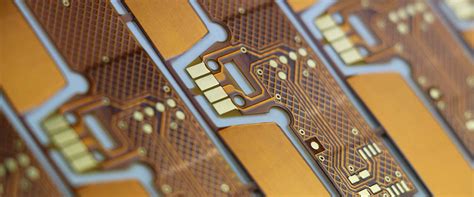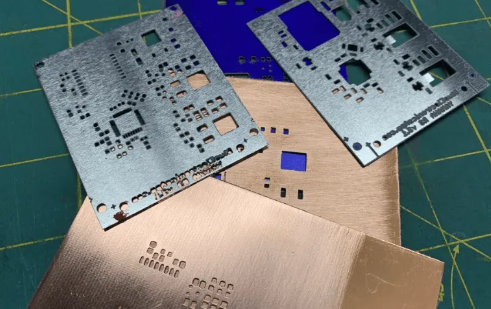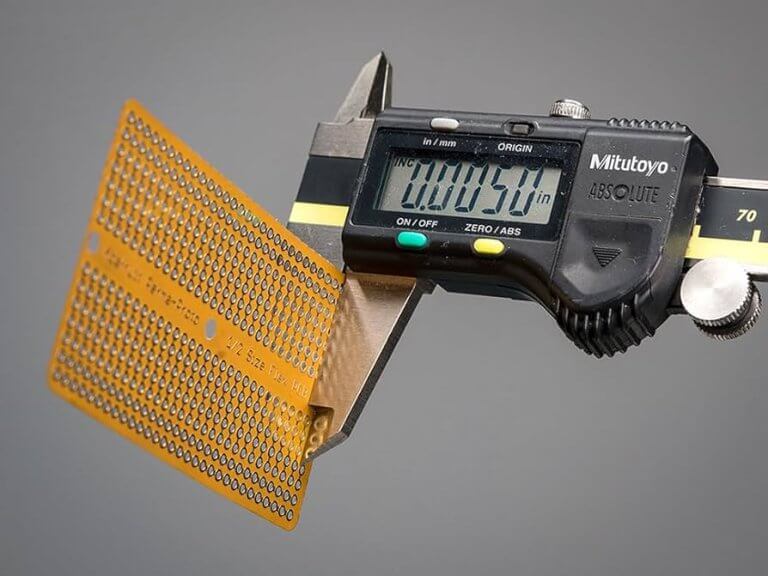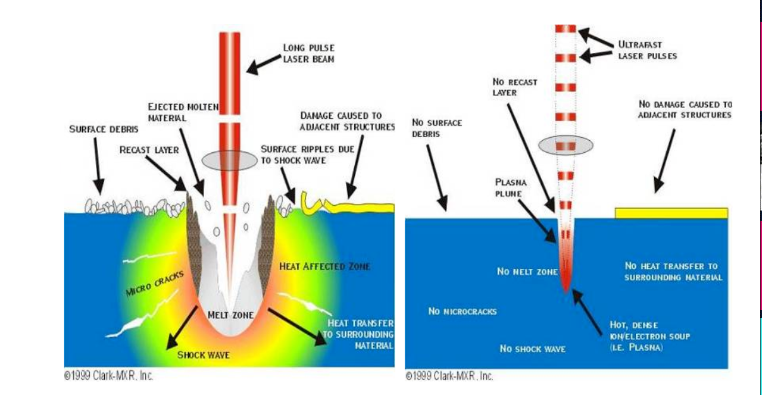Top Circuit Board Assembly Companies Revolutionizing Technology
Key Takeaways
In an era where technology continues to evolve at an unprecedented pace, pcb assembly companies play a pivotal role in driving innovation and efficiency in the electronics industry. These firms utilize advanced techniques that redefine traditional manufacturing, allowing for enhanced productivity and improved product quality. The evolution of pcba has enabled manufacturers to meet the rising demand for sophisticated electronic devices across various sectors, from consumer electronics to automotive applications. Additionally, the integration of automation and artificial intelligence in pcb assembly processes has optimized production timelines, reduced errors, and minimized waste, ultimately contributing to cost savings. As industries increasingly rely on complex electronic components, the knowledge and capabilities of these circuit board assembly leaders will be vital in shaping competitive advantages through cutting-edge products. Furthermore, the ongoing focus on sustainability within the pcba sector highlights the commitment of these companies to not only advance technology but also to adhere to environmentally friendly practices—a necessity in today’s conscientious market landscape.
Introduction to Circuit Board Assembly: The Backbone of Modern Electronics
Circuit board assembly, commonly referred to as pcb assembly or PCBA, plays a pivotal role in the landscape of modern electronics. As technology evolves, the demand for efficient and reliable circuitry increases, placing circuit board assembly companies at the forefront of innovation. These companies utilize advanced techniques to ensure that each circuit board meets the high standards required for various applications, from consumer electronics to industrial machinery.
The process of pcb assembly involves several steps, including component placement, soldering, and quality testing. Each phase is critical for ensuring that the final product is not only functional but also durable. Innovative manufacturing processes have emerged that enhance efficiency and precision in this sector. As companies adapt to these advancements, they are effectively transforming product design and pushing the boundaries of what’s possible in electronics.
“The future of electronics relies heavily on effective assembly processes; hence understanding PCBA technology is essential.”
In exploring the nuances of circuit board assemblies’ influence across different industries—from healthcare to telecommunications—it becomes evident that these assemblies are indeed the backbone supporting a connected world. The focus on sustainability within circuit board manufacturing also reflects a growing awareness among companies about their environmental impact. As new trends continue to shape this space, it’s essential for stakeholders to stay informed about innovative solutions emerging within the pcb assembly realm, which ultimately drives forward technological advancements and industry growth.
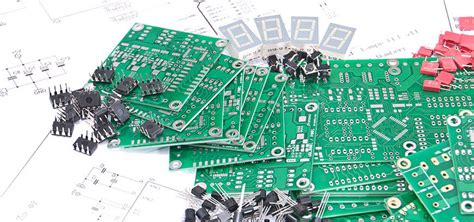
Key Players in the Circuit Board Assembly Industry
The circuit board assembly (CBA) industry is pivotal in advancing technology across various sectors. Key players in this field range from established giants to innovative newcomers, each contributing meaningfully to PCB assembly efficiencies and capabilities. Notable companies like Foxconn, Jabil, and Plexus are at the forefront, mastering the art of scaling production while maintaining precise quality control.
These firms leverage cutting-edge manufacturing techniques, such as Surface Mount Technology (SMT) and Through-Hole Technology (THT), to create complex electronic assemblies efficiently. The role of these players extends beyond mere production; they engage deeply in advanced engineering solutions that facilitate faster product development cycles and enhanced performance of electronics.
Here’s a brief overview of some major contributors in the industry:
| Company Name | Specialization | Key Technologies Used |
|---|---|---|
| Foxconn | High-volume consumer electronics | SMT, THT |
| Jabil | Diversified manufacturing for various markets | Agile manufacturing techniques |
| Plexus | Product design and engineering services along with PCB assembly | Integrative solutions |
In conclusion, these key players are instrumental in shaping the direction of PCBA, driving innovations that meet the demands of an evolving marketplace. Their influence reaches beyond technical capabilities; they impact global supply chains and set benchmarks for quality and reliability across industries, making them indispensable to modern electronics.
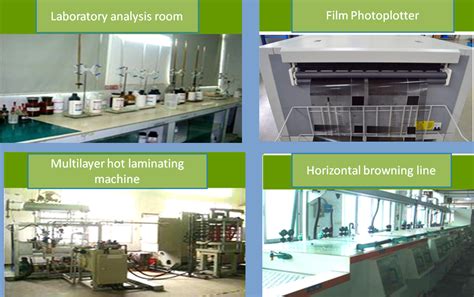
Innovative Manufacturing Processes Driving Efficiency
In the rapidly evolving landscape of electronics, pcb assembly has become a linchpin in achieving heightened efficiency and precision in production. Leading pcb assembly companies are pioneering innovative manufacturing processes that streamline operations and minimize waste. Techniques such as surface mount technology (SMT), designed to allow components to be mounted directly onto the surface of a printed circuit board (PCB), have revolutionized the effectiveness of pcba production. This method not only accelerates assembly time but also enhances reliability, which is crucial in high-stakes sectors like aerospace and medical devices.
Moreover, automation plays a pivotal role in driving efficiency within the pcb assembly process. Automated machines equipped with advanced robotics facilitate accurate placement of components, significantly reducing human error and increasing throughput. Additionally, the integration of sophisticated software for design validation ensures that any potential defects are identified early on in the production cycle, further optimizing the overall process.
As companies adopt practices like lean manufacturing and just-in-time (JIT) inventory management, they can effectively respond to market demands while minimizing production costs. Such innovative approaches not only bolster operational efficiency but also contribute to faster time-to-market for new products, allowing businesses to keep pace with technological advancements.
In conclusion, the advancements in manufacturing processes spearheaded by leading pcb assembly firms are integral to enhancing operational productivity. These methodologies not only provide businesses with a competitive edge but also foster a culture of innovation that propels ongoing growth within the electronics industry.
Advanced Engineering Solutions Transforming Product Design
In the rapidly evolving world of electronics, pcb assembly companies are at the forefront of innovation, particularly through advanced engineering solutions that significantly enhance product design. These pcba giants employ sophisticated techniques that streamline the design and manufacturing process, allowing for greater flexibility and customization. By leveraging technologies such as computer-aided design (CAD) and simulation software, these companies optimize board layouts to ensure both functionality and reliability. Additionally, innovative materials are being utilized to improve thermal management and electrical performance, which are critical aspects of modern electronics. The integration of electronic components is meticulously managed to reduce signal interference and enhance overall product efficiency. This proactive approach not only meets market demands but also empowers designers to push boundaries in creating more compact, lightweight, and efficient devices. As a result, pcb assembly is not merely a step in production; it becomes a critical element that influences the entire lifecycle of electronic products, paving the way for future advancements in various industries.
Impact of Circuit Board Assembly on Various Industries
The realm of pcb assembly serves as the foundation for numerous industries, significantly influencing their progression and operational efficiency. In sectors such as telecommunications, consumer electronics, automotive, and healthcare, pcba processes have become essential in producing compact, reliable, and efficient circuitry that dismantles the constraints of traditional manufacturing. For instance, in the automotive industry, advanced pcb assembly techniques enable the integration of smart technologies into vehicles, enhancing functionalities such as advanced driver-assistance systems and infotainment features. Moreover, in healthcare, precision is paramount; here, cutting-edge pcba innovations facilitate sophisticated medical devices that support both diagnostics and patient monitoring.
The adaptability and scalability of circuit board assembly companies contribute significantly to sustainability efforts across industries by minimizing waste through optimized manufacturing processes. As these companies embrace automation and smart technologies, they not only increase productivity but also enhance the quality of electronic products that touch our daily lives. Ultimately, the impact of circuit board assembly transcends mere manufacturing; it lays down the framework for innovation across various fields while responding proactively to evolving consumer demands. Thus, as technology progresses, so too does the critical role of pcb assembly in shaping efficient solutions that drive modern industry standards forward.
Sustainability Practices in Circuit Board Assembly
In recent years, the pcb assembly industry has increasingly focused on sustainability practices to mitigate environmental impacts and enhance operational efficiency. Leading pcba companies are adopting a range of innovative strategies designed to reduce waste, utilize eco-friendly materials, and improve energy efficiency throughout the manufacturing process. For instance, implementing lead-free soldering techniques not only assists in compliance with environmental regulations but also ensures safer end products. Additionally, companies are investing in automated production lines that optimize material usage and decrease energy consumption, showcasing their commitment to responsible manufacturing.
Furthermore, many organizations are embracing circular economy principles by designing products that can be easily disassembled and recycled at the end of their life cycle. This proactive approach within circuit board assembly not only minimizes landfill waste but also encourages the recovery of precious metals and other materials essential for electronics manufacturing. As pressure mounts from consumers and regulatory bodies alike, the industry’s shift towards sustainable practices in pcb assembly not only aligns with global goals for environmental preservation but also positions these companies at the forefront of technological advancement.
By prioritizing sustainability in their operations, leading circuit board assembly firms are not merely responding to market demands but are actively shaping a greener future for electronics. This commitment enhances their corporate reputation while paving the way for innovative solutions that will transform industries and drive lasting change. Such practices reflect an understanding that sustainability is no longer just an option—it has become a critical pillar in defining success within the pcba industry.
Future Trends in Circuit Board Technology
As the electronics industry continues to evolve, several future trends are likely to shape the landscape of pcb assembly and PCBA methodologies. One noteworthy trend is the increasing transition towards miniaturization, which requires more compact and efficient designs. This not only necessitates advanced engineering solutions but also innovative manufacturing processes that can accommodate tighter specifications while ensuring reliability. Furthermore, the incorporation of emerging technologies such as flexible circuit boards and 3D printing is being explored, enhancing the versatility of products. In addition, the growing demand for high-performance electronics is driving companies to adopt sophisticated materials that can withstand more rigorous operational environments. These advancements are complemented by a push towards improved automation in the manufacturing process of pcb assembly, significantly enhancing production rates and decreasing human error. As sustainable practices gain momentum, there is also an emphasis on environmentally friendly materials and processes within PCBA, which not only reduces waste but also aligns with global sustainability goals. Overall, these future trends point toward a rapidly advancing sector that is poised to continually redefine electronic applications across various industries.
Conclusion: The Role of PCB Assemblers in Shaping Tomorrow’s Electronics
The significance of PCB assemblers in the realm of modern electronics cannot be overstated. These skilled professionals and companies play a pivotal role in the production of circuit boards, also known as pcba, which serve as the backbone of virtually all electronic devices. As technology advances, the demand for high-quality pcb assembly operations has intensified, leading to innovative techniques that enhance manufacturing efficiency and product reliability. By integrating cutting-edge engineering solutions, pcb assembly firms are not just meeting current industry standards; they are pushing the boundaries of what is possible in electronic design. The impact of these companies extends across various sectors, from consumer electronics to aerospace and medical devices, highlighting their versatility and essential contributions to future developments. As we look forward, it is evident that the collaboration between technology and pcba will be instrumental in shaping an increasingly digital world, ensuring that products are not only functional but also sustainable and efficient. Thus, the role of PCB assemblers will be vital in guiding the progress and innovation that defines tomorrow’s electronics landscape.
Conclusion: The Role of PCB Assemblers in Shaping Tomorrow’s Electronics
As we navigate the rapidly evolving landscape of technology, the significance of PCB assembly cannot be overstated. PCB assemblers play a crucial role in bridging the gap between abstract electronic design and tangible devices. Their innovative manufacturing processes enhance efficiency, allowing for quicker production times and reduced costs, which are essential in meeting consumer demand in various industries. By employing advanced engineering solutions, these companies not only create compact and powerful boards but also ensure that products are designed with functionality and sustainability in mind. This alignment with emerging technologies allows for the development of smarter electronics that can adapt to an ever-changing market. As industries increasingly rely on PCBA for both basic and advanced applications, we can expect to see these firms continue to push boundaries, crafting sophisticated electronic components that will fundamentally reshape the future landscape of technology. Consequently, the partnership between circuit board assembly companies and technological advancements will remain pivotal as we step into a new era of innovation and interconnectedness in electronics.
FAQs
What is PCB assembly?
PCB assembly, often referred to as pcba, is the process of connecting various electronic components to a printed circuit board (PCB) to create a functional electronic device.
Why is PCB assembly important in electronics?
The importance of pcb assembly lies in its ability to create complex and efficient electronic circuits that power everything from consumer gadgets to industrial machinery, making it a backbone of modern electronics.
What are the main steps involved in the PCB assembly process?
The main steps include soldering, component placement, inspection, and testing. Each step is crucial for ensuring that the final product meets safety and performance specifications.
How do companies ensure the quality of PCB assemblies?
Leading companies implement rigorous quality control measures, such as automated optical inspection (AOI), functional testing, and adherence to industry standards like IPC-A-610, which govern product quality.
What technologies are used in modern PCB assembly?
Modern pcba relies on advanced technologies such as surface mount technology (SMT), robotic assembly processes, and computer-aided design (CAD) tools that streamline production lines and enhance precision.
How do sustainability practices factor into PCB assembly?
Many circuit board assembly companies are adopting sustainable practices by reducing waste, recycling materials, and using environmentally friendly components to minimize their environmental footprint.
What future trends can we expect in PCB technology?
The future of pcb assembly promises advancements such as miniaturization of components, integration of IoT devices directly into PCBs, and enhanced functionalities through flexible circuit designs.

